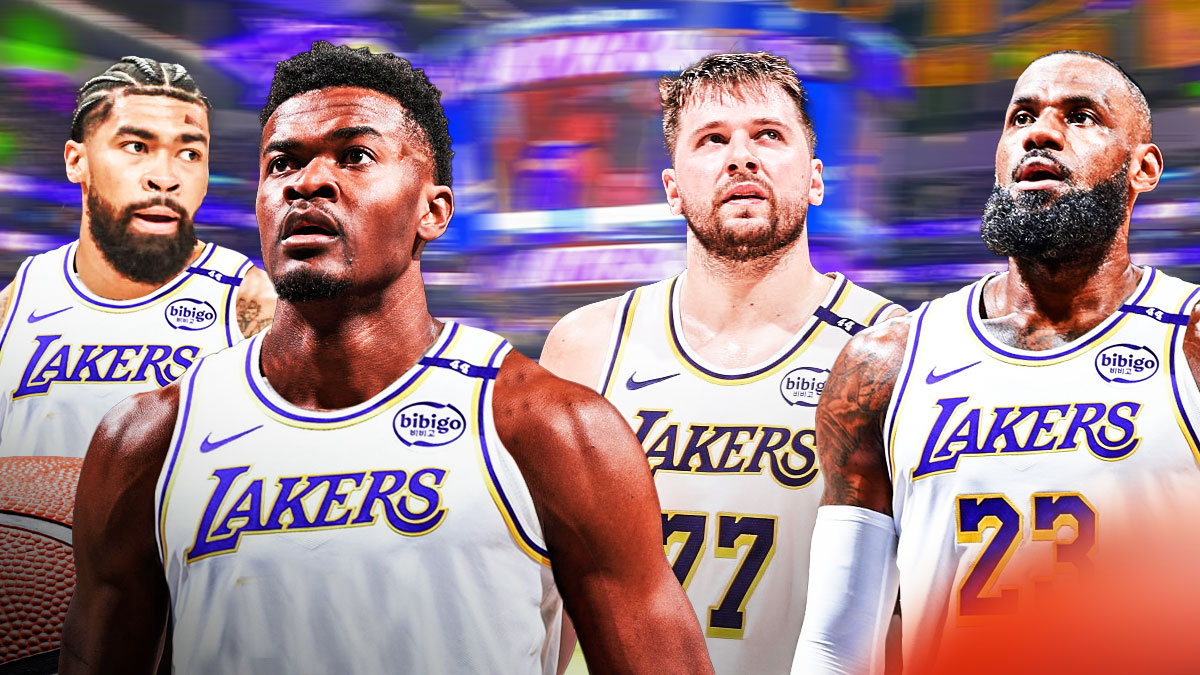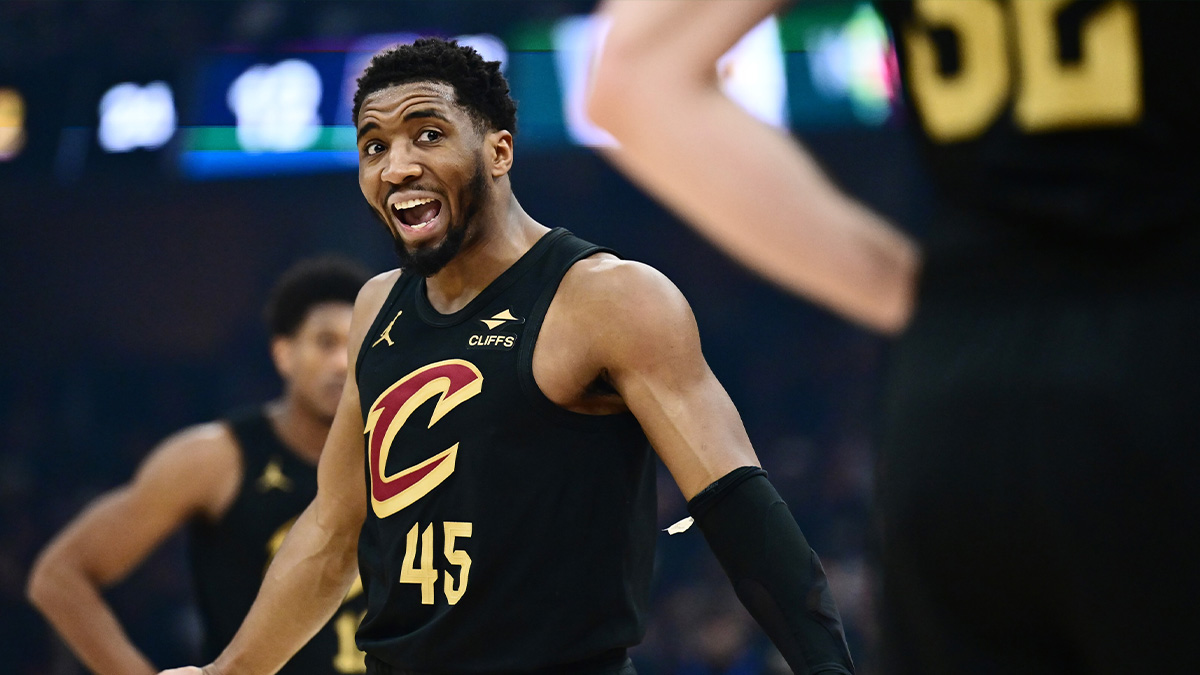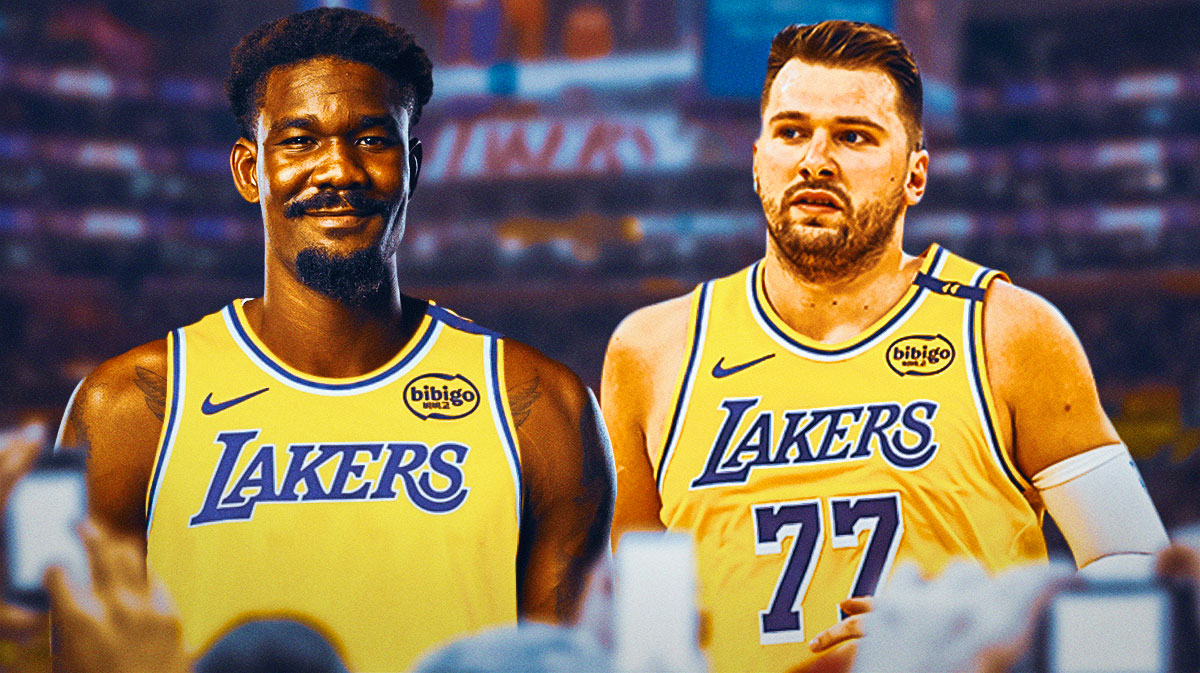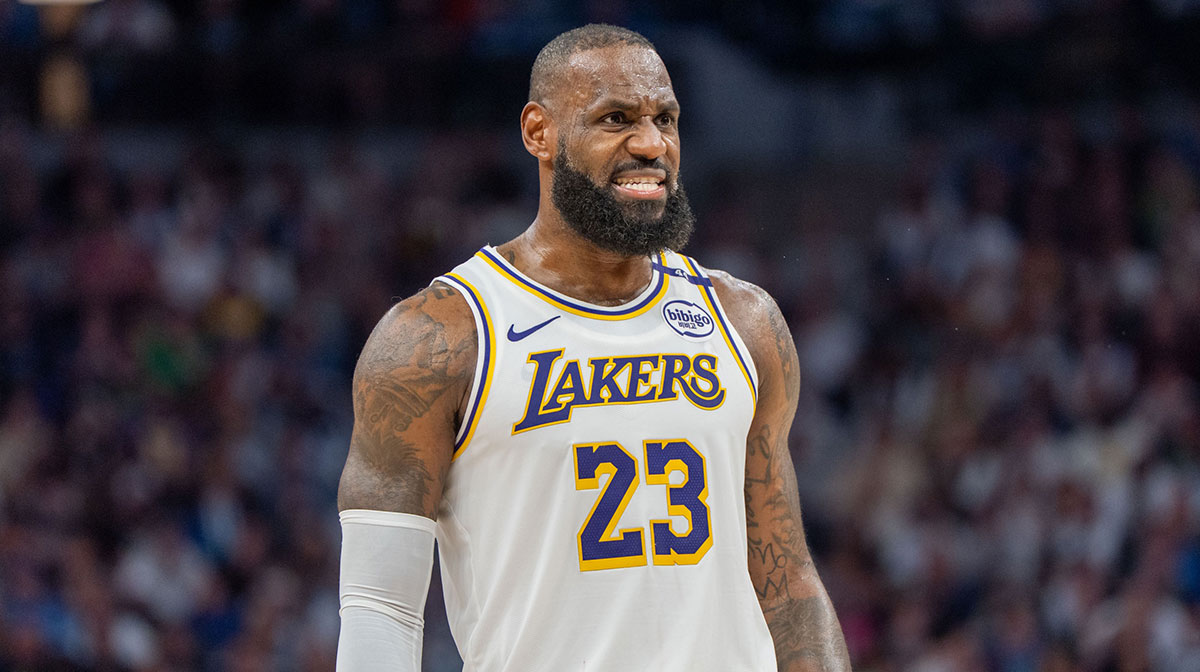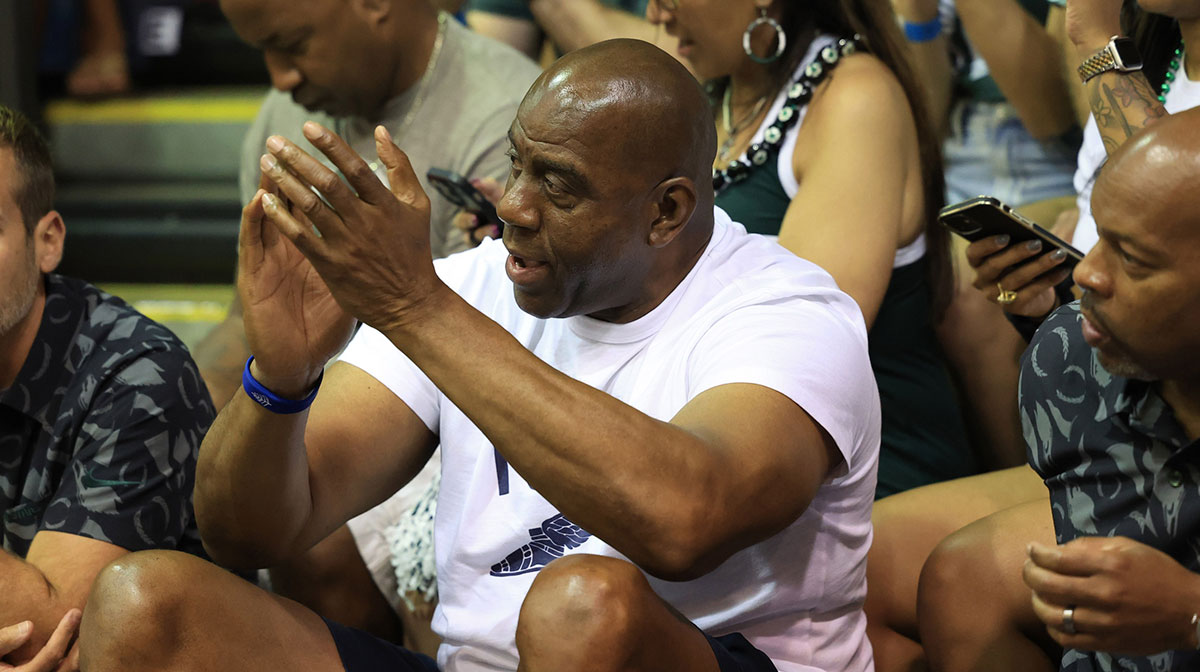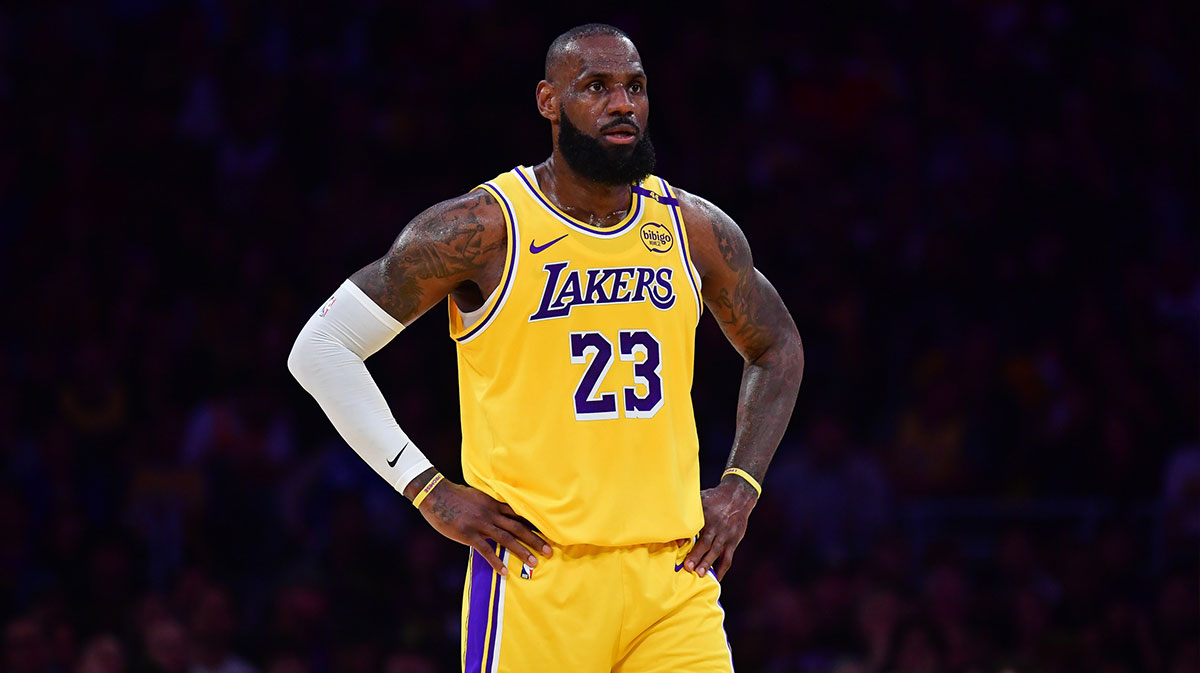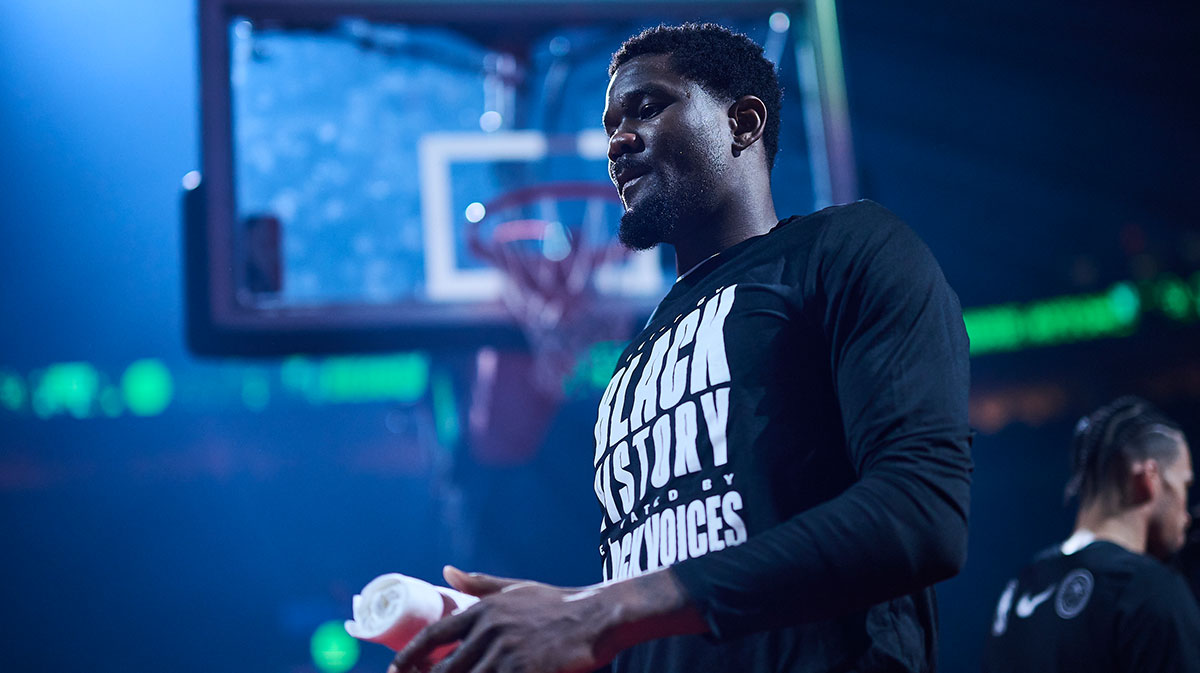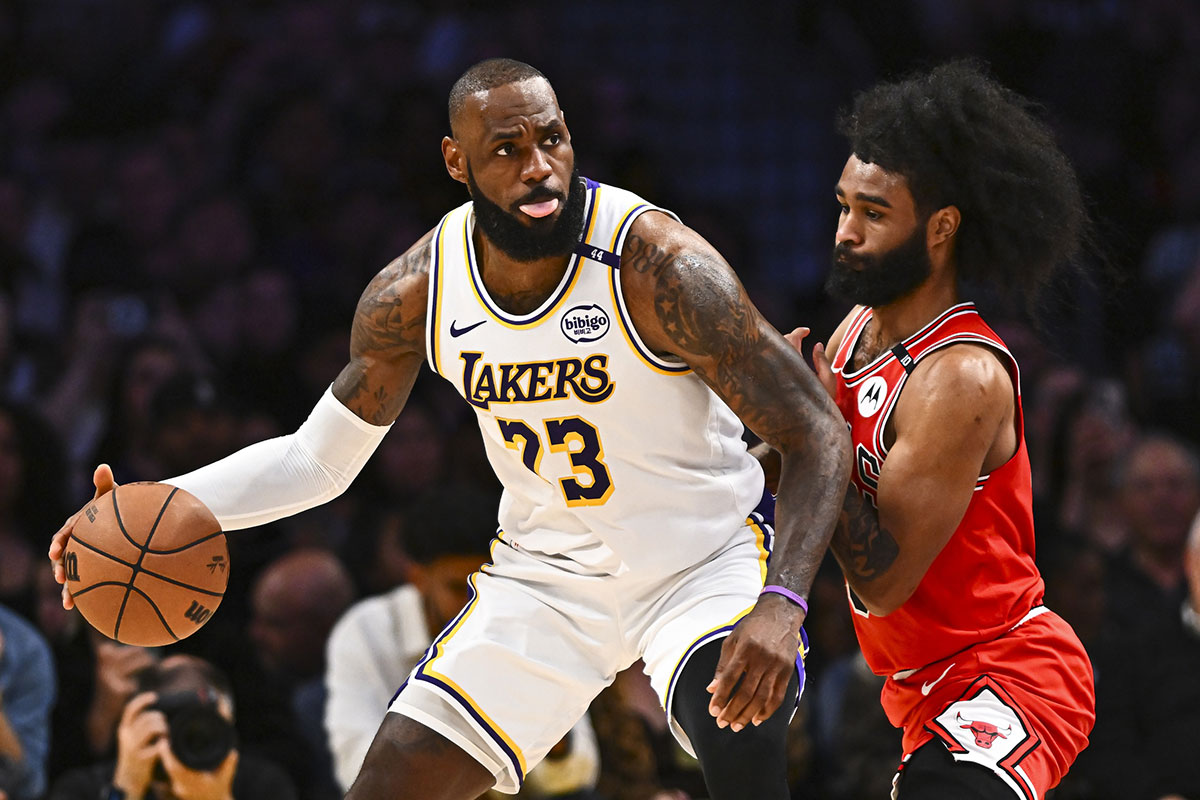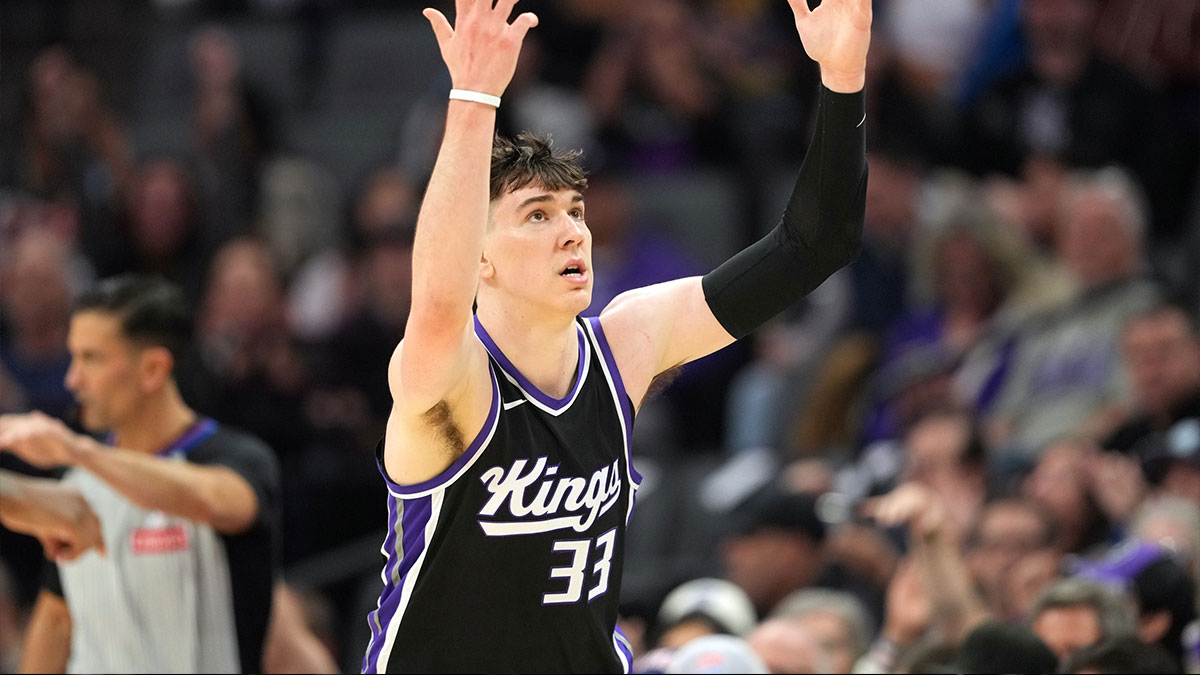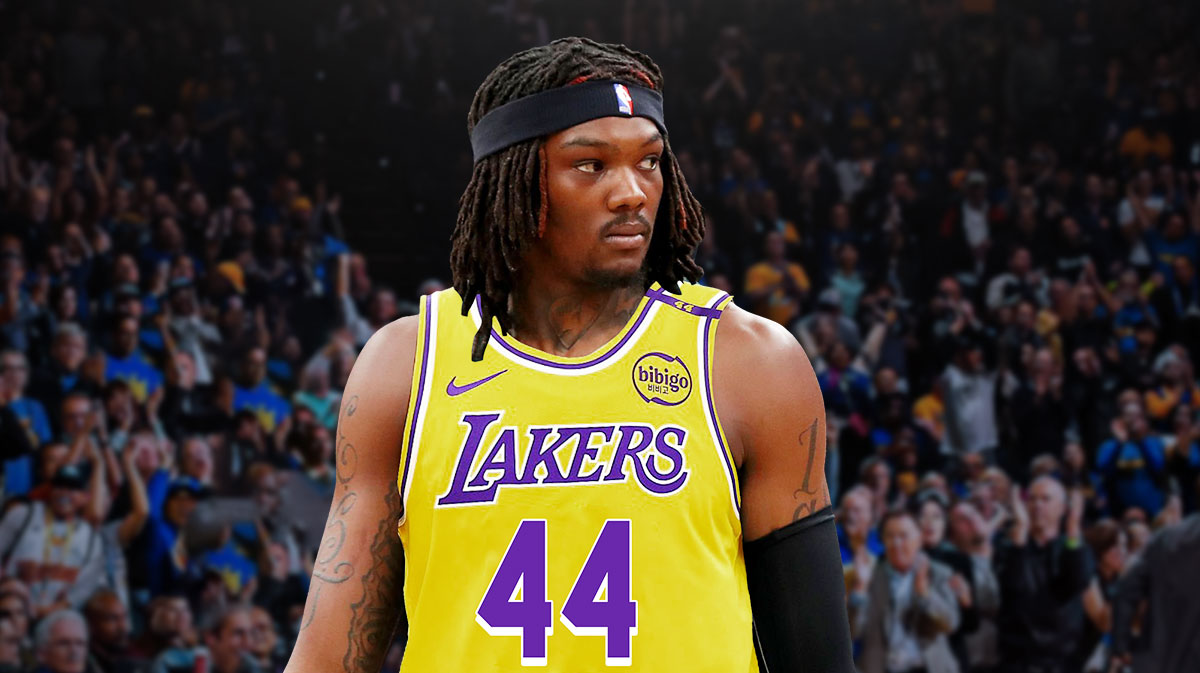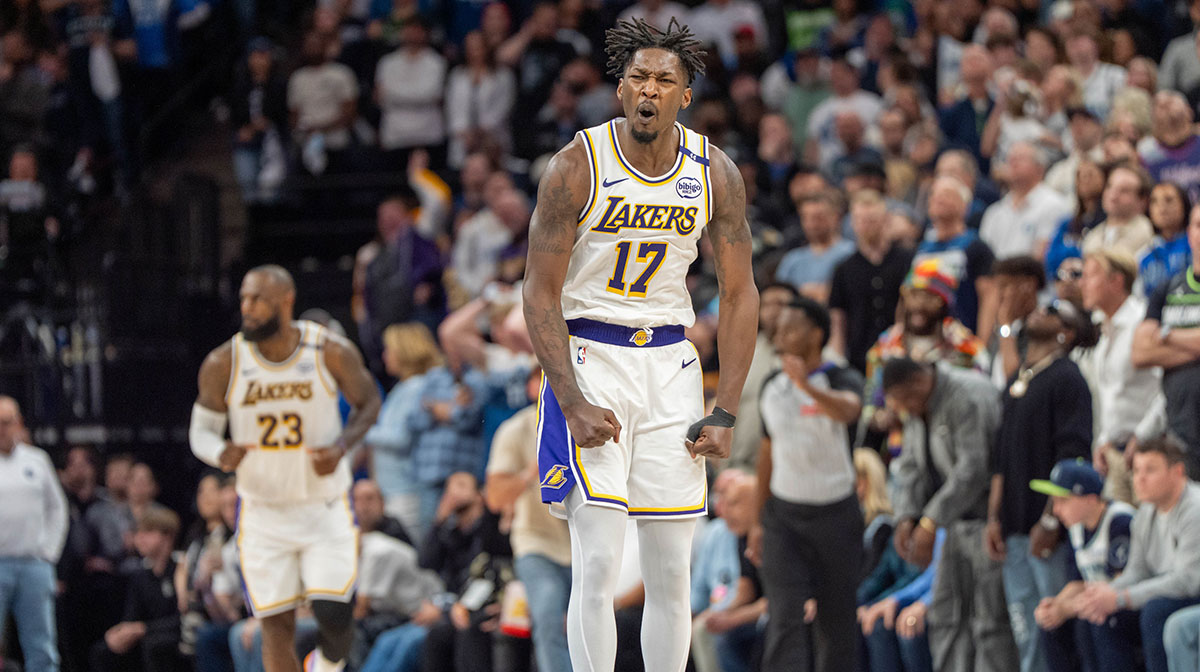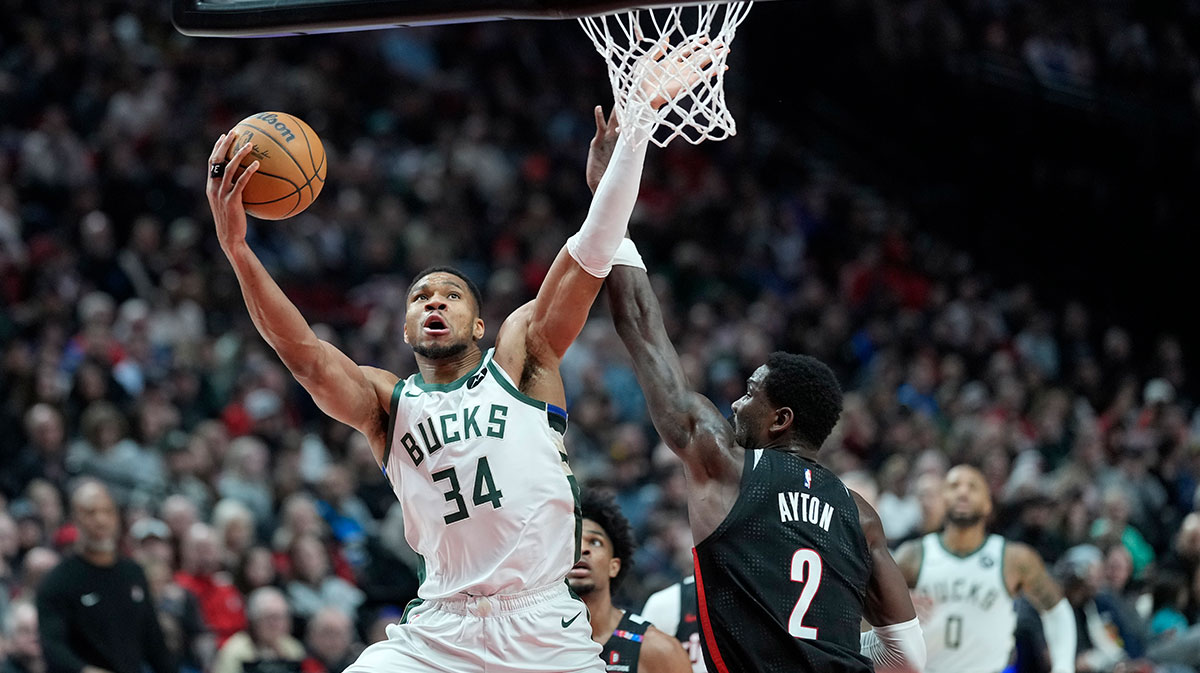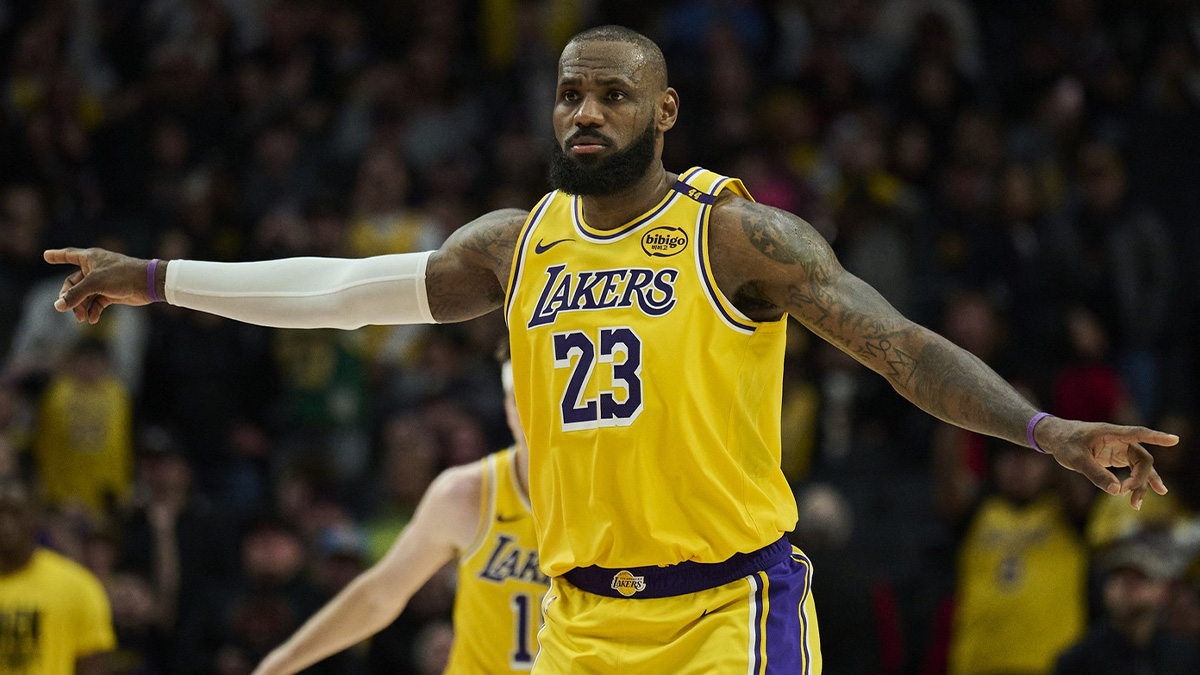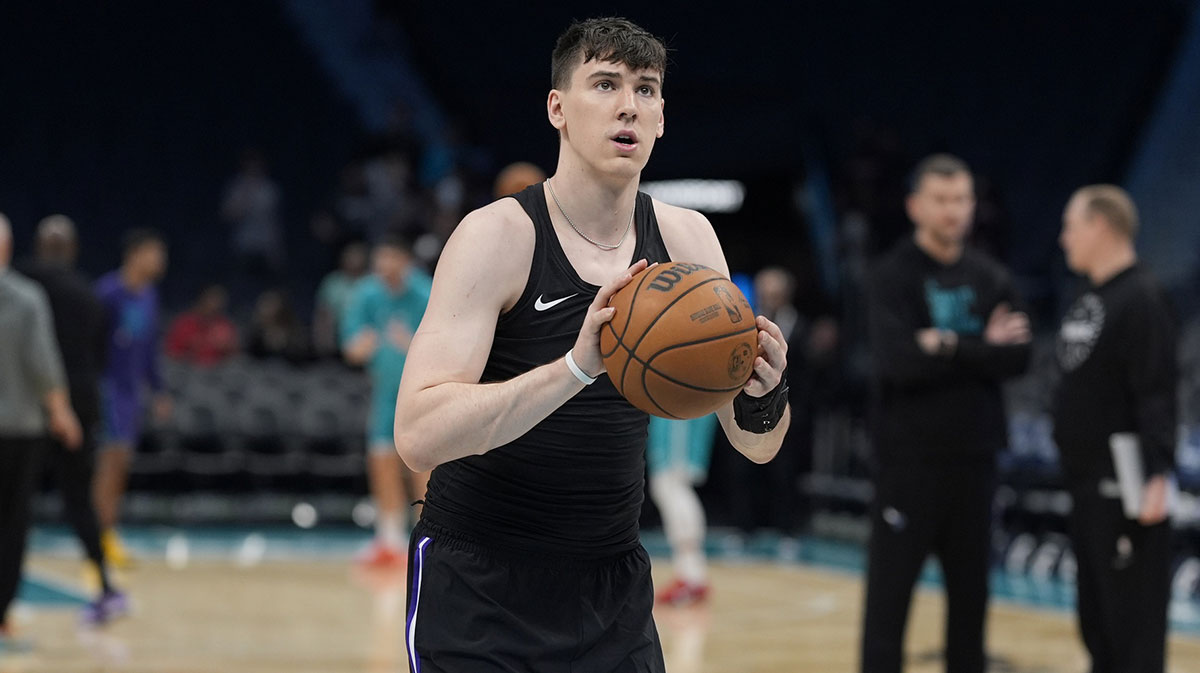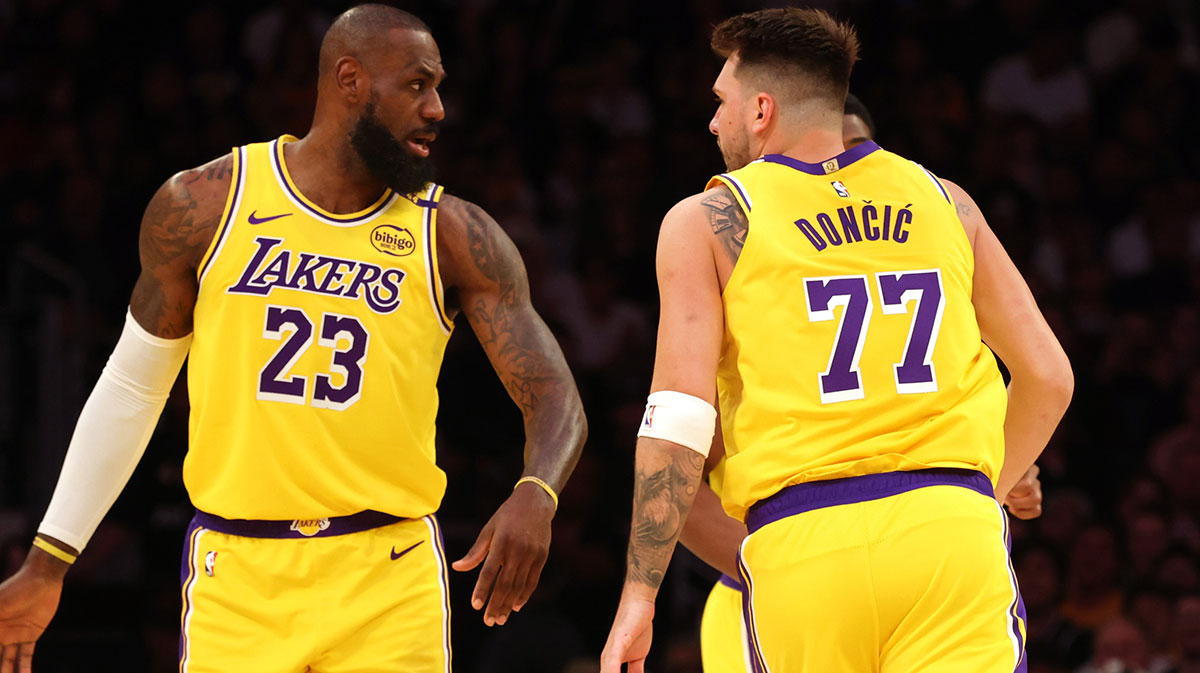Heading into their Christmas Day showdown with the two-time defending champion Golden State Warriors, LeBron James and the Los Angeles Lakers had righted a wayward ship. After a 2-5 start marked most by James' jarring lack of engagement defensively, the Lakers bounced back to win 17 of their next 26 games, buoyed by an ever-improving defense that suddenly ranked in the league's top 10 and an offense slowly rounding into form while trying to fit square pegs into round holes.
The performance of James was the biggest reason for his new team staying afloat offensively. He averaged 27.6 points, 8.0 rebounds, and 7.0 assists per game with a true shooting percentage of 60.2 from November to Christmas, with the four-time MVP proving the offensive bellwether he's been for the better part of the last two decades. Los Angeles' offensive rating without James on the floor over that timeframe was 99.5, per NBA.com/stats, a team-low by more than four points per 100 possessions.
James notched 17 points, 13 rebounds, and five assists on 6-of-11 shooting against the Warriors, spurring his team to a double-digit lead at Oracle Arena before leaving the game for good midway through the third quarter with a groin injury. The worst fears stemming from James' awkward slip were allayed the day after the Lakers' victory, when it was announced that James had avoided serious injury, merely suffering a strained left groin.
The relatively minor nature of James' injury, plus his superhuman ability to avoid them altogether throughout his career, sparked initial optimism that his return would be best measured in a matter of days rather than weeks. That hope proved rash, unfortunately, as James, at 34, recovered more slowly than anticipated, missing Los Angeles' next 17 games – a stretch that resulted in the purple and gold dropping from fourth in the Western Conference to out of playoff position entirely.
The Lakers went 2-3 during James' first five games after returning from the longest absence of his 16-year career, a record that fails to convey just how poorly they played in blowout losses to the Indiana Pacers and Atlanta Hawks. No matter, though. After the All-Star break, James stressed that playoff mode had been “activated” for the remainder of 2018-19, a promise an overwhelming majority agreed would inevitably lead to Los Angeles playing its best basketball of the season when it mattered most.
Wrong.
The Lakers, beset by injuries to Lonzo Ball and Brandon Ingram, went 2-5 in their first seven games after the All-Star break, with realistic expectations of making the playoffs vanishing altogether following a crucial 113-105 loss to the cross-arena Los Angeles Clippers on March 4th. James has sat out of two games in the interim, as Los Angeles finishes a season that will undoubtedly go down as one of the most disappointing in franchise history – and of James' storied career.
But the most popular takeaways from the Lakers' wasted season aren't about the vexing approach Magic Johnson and Rob Pelinka took to filling out their roster in free agency last summer, the flattening developmental arcs of the team's young players, nor an acknowledgement of the role injuries played in Los Angeles' demise. Instead, a growing number of league followers – everyone from former players, to hired analysts, to casual fans – have begun submitting that this season marked both the end of James' extended prime and the beginning of delayed decline.
To be fair, that could very well be the case. James is already playing with house money, not just because winning the 2016 Larry O'Brien Trophy, as he says, made him the greatest player of all time, but because no one in history had ever been at the top of the league's individual hierarchy for as long as James. The deterioration of his game was always inevitable, even if his decade and-a-half of sustained greatness made that hard to believe.
But there's also a clear case to be made that talk of James' downturn is premature.
It's jarring how quickly the basketball world seems to have forgotten his performance in last year's playoffs, when he averaged 34.0 points, 9.1 rebounds, and 9.0 assists per game with a 61.9 true shooting percentage, drained two game-winning buzzer-beaters, and dragged the outmanned Cleveland Cavaliers to overtime in Game 1 of the NBA Finals with a 51-point, 8-rebound, 8-assist masterpiece.
The numbers say James' perceived athletic decline has been exaggerated, too. He's averaging more dunks per game this season than he did a year ago and is shooting an elite 71.9 percent at the rim, better than either of his first two seasons after his return to the Cleveland Cavaliers.
Remember the 2014-15 season? James labored through back pain after his second Decision, shooting his lowest percentage from the field in years and notching the fewest number of dunks in his career. Many speculated back then that James, at 30, would never reach the heights of his time with the Miami Heat. He dethroned the 73-9 Warriors one year later, playing a level of basketball most agree no player in league history had ever achieved before.
That was three years ago. Father Time is undefeated, and the month of play missed while recovering from a non-serious injury indeed suggests he's coming for James. But so many using his substandard performance after returning to the floor and the Lakers' accompanying inability to make a playoff push as evidence of his prime being finished is an example of forced narrative rather than an objective view of the facts at hand.
Los Angeles built this team the wrong way – that was clear when Johnson and Pelinka signed Rajon Rondo, Lance Stephenson, and Michael Beasley last summer. Injuries to Ball and Ingram played a major part in the Lakers' late-season struggles. Additionally, Los Angeles very likely would have been able to overcome them and make the playoffs regardless if James hadn't suffered an injury of his own, prompting his team to go 6-11 without him.
Only time will tell if prognostications of James' decline are accurate. Don't be surprised come this time next year, though, if James is playing at his normally elite level, preparing the Lakers for a playoff push before flipping the switch come the postseason – just like he's done so many times before – and re-establishing himself as the player he's always been.

